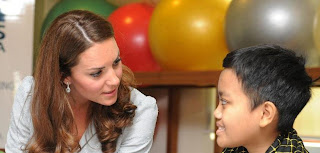“What’s the parental security code on the
tv?” I ask my 11 year old daughter. She rattles off the four digit pin. After
a couple more questions about HDM1 versus HDM2 I’m happily watching my recording of Grand Designs
while my daughter wearily shakes her head and goes back to her ipod.
Digital kids eh, if they’re not filling up the recording box, they’re laughing at your lack of followers on twitter or, worse than any of that, giving YOU a tutorial about how to use your own TV!
Digital kids eh, if they’re not filling up the recording box, they’re laughing at your lack of followers on twitter or, worse than any of that, giving YOU a tutorial about how to use your own TV!
Ever since the heady days of being allowed
to eat sausage rolls in the living room while watching The Generation Game I’ve
held a few unshakeable beliefs about television. These are mostly centred round the principles
that too much is bad for you and it shouldn’t be on if you’re not watching it.
Recently I’ve added a couple more such as the more channels you have, the less
there is to watch and don’t let the dog have the remote but overall the
sentiment remains, use it properly and it’s a force for good.
But that’s the problem, what is “proper”
use of the big/small screen for the digital generation? It was easy for my
parents, children’s programmes were only on for a short time each day and even
the presenters on those were urging us to go out and do something more
interesting than watching TV. I wasn’t allowed to watch ITV just the BBC
(because “we were paying for it”), imagine trying to stop the kids watching X
Factor with that logic!
Now, even babies have 12 hours of TV just
for them and that’s before they can talk or walk. Throw in other screen distractions such as addictive
birds with anger issues, war games and any number of ways to interact via
screen time and it’s a heady mix of free babysitting and 24/7
entertainment. So when does harmless entertainment become
a health risk? And, more importantly, if too much time on the sofa is bad for
healthy kids how much more complex are the issues for youngsters already living
with health problems? Limiting screen time for kids who can easily go and do
something else is tough enough but what about youngsters with more complex
needs?
It might not feel like it when all you want
to do is watch your favourite programme and can’t quite break into your own
security settings but TV, and screen time in general, is not the enemy. The
challenge is how and when to use it. Social media can be a lifeline for anyone
with communication problems, as the daughter of campaigner, Tony Nicklinson
described movingly in a radio interview shortly before her father’s death.
Twitter, she said, had given him a voice and he loved being able to talk
directly to his thousands of followers in a way he couldn’t with any other
medium. Similarly there are stories of youngsters who love one particular show,
character or game with powerful and liberating results such as sharing that
common interest with others and escape from anxiety or pain.
This digital generation has an unlimited
and thought-provoking world of education and entertainment at its very
fingertips. The best we can do is make sure they know how to use the off
switch. Let’s face it, they’re more likely to know which remote to use for that
than we are.
Bringing up Britain – challenges facing the digital generation – BBC Radio Four
Lynne Wilson
Guest Blogger
Lynne Wilson
Guest Blogger



